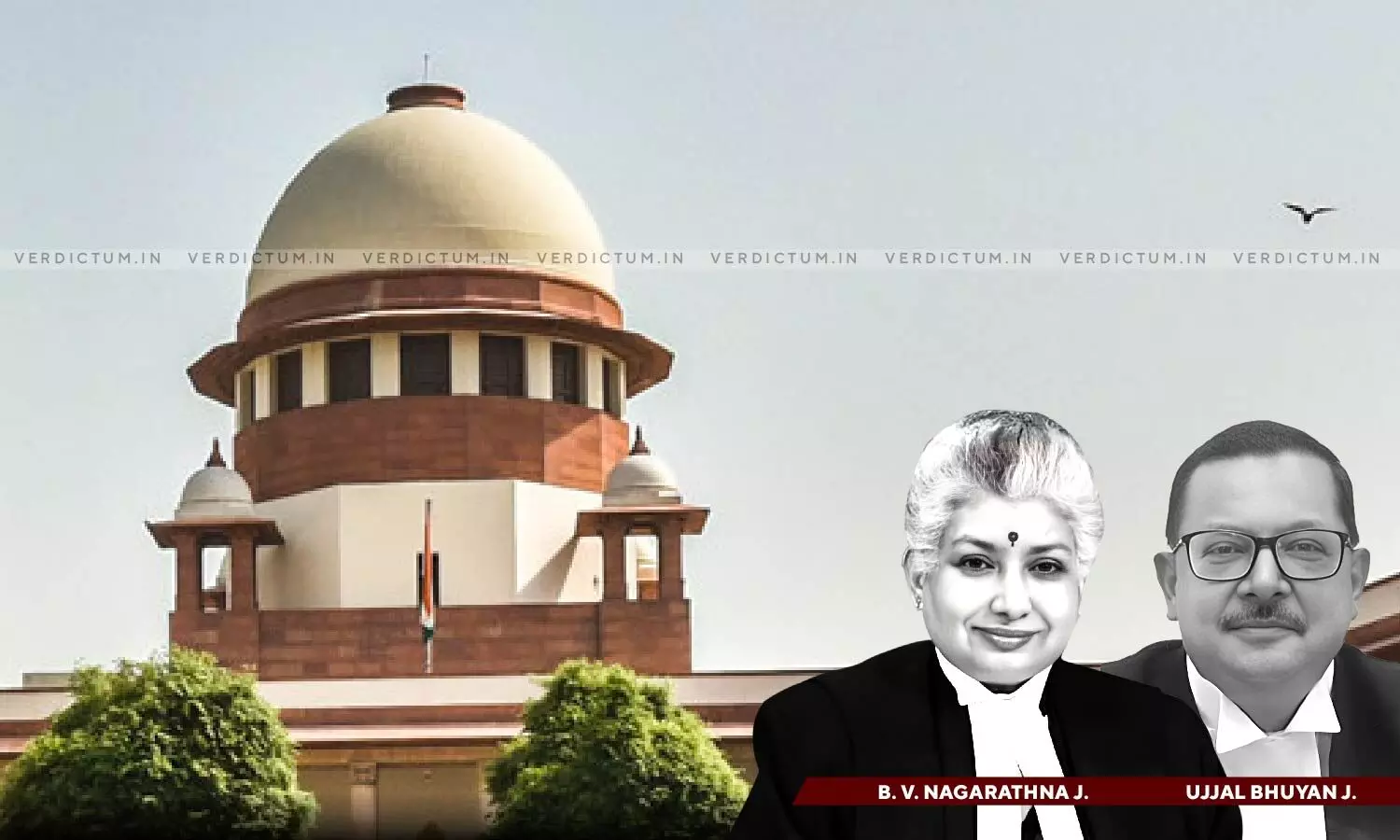
Same Issue Before Multiple High Courts- That There Is Bound To Be Differences Of Opinion Is No Reason To Seek Transfer To Apex Court: SC
 |
|The Supreme Court while dealing with a Transfer Petition case has recently observed that merely because there are bound to be differences of opinion in matters pending before different High Courts, that is no reason to seek the transfer of cases pending before different High Courts to the Apex Court.
Turning down the request of the Union of India seeking the transfer of a case, relating to reassessment notice under Section 148 of the Income Tax Act, from the Gauhati High Court to the Supreme Court, the bench of Justice B.V. Nagarathna and Justice Ujjal Bhuyan in its order stated, "When matters are pending before different High Courts, there is bound to be differences of opinion. That is no reason to seek transfer of the cases pending before different High Courts to this Court so as to make the proceeding before this Court an original as well as final proceeding."
The Bench also emphasized the fact that allowing such Transfer Petitions could potentially deprive the unsuccessful party of their right to appeal. Furthermore, the Bench stated that there is no justification for seeking the transfer of matters that are already pending before a High Court. "Prima facie, we are of the view that when the matter is pending before the High Court, there is no justification for seeking transfer of the petition from the High Court to the Supreme Court", stated the Court.
Accordingly, the Court stated, "In the circumstances, we do not think that the matter would require any further consideration."
Additional Solicitor General N. Venkatraman along with Advocate-on-Record Raj Bahadur Yadav appeared for the Union of India.
In the case sought to be transferred to the Apex Court by the Union of India, the High Court had issued an order preventing any coercive action against the petitioner, M/S Jsvm Plywood Industries Ltd. The petitioner had approached the High Court to challenge the notice under Section 148 of the Income Tax Act, as being barred by the limitation.
However, it was the argument of the Respondent that Sub-Section (b) of Section 149 of the Act extends the limitation period up to 10 years for matters falling under the purview of Section 148 of the Income Tax Act.
Cause Title: Union of India & Ors. v. M/S Jsvm Plywood Industries Ltd [Diary No(s). 34418/2023]
Click here to read/download the Order